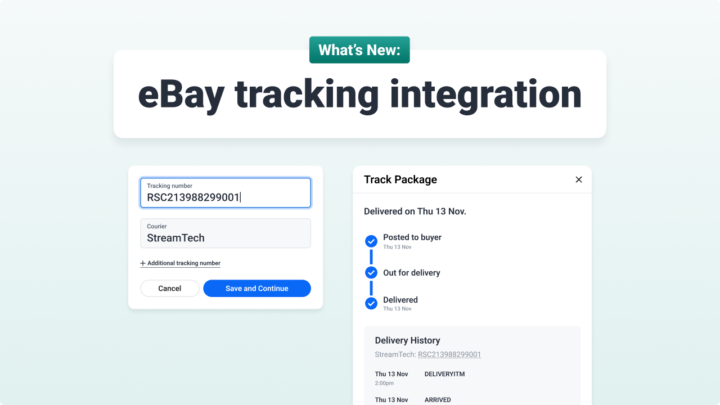Behind every life-saving medicine is a complex pharmaceutical supply chain.
A hidden network operating under immense pressure to ensure safety, compliance and speed of delivery.
As medical treatments advance towards highly specialised and patient-specific therapies, the logistics operations that distribute them must also evolve at the same pace.
The UK’s pharmaceutical sector, a global leader, is at the forefront of this transformation.
In 2022, the UK exported pharmaceutical products worth over £25 billion, underscoring the vast scale of the industry.
Whether you’re in the industry or simply curious, understanding what makes the pharmaceutical supply chain unique reveals why its flawless management is more critical than ever.
What is a Pharmaceutical supply chain?
At its core, the pharmaceutical supply chain is the intricate system that moves medicine from the manufacturer to the patient.
This journey begins with the production of active pharmaceutical ingredients (APIs) and finished drug products.
It is followed by meticulous packaging, storage, and transport (often across continents) before reaching hospitals, pharmacies, or even directly to patients’ homes.
In England alone, the NHS prescribed 1.18 billion items in 2023, all of which rely on the pharmaceutical supply chain to reach patients.
Each handover must guarantee the product remains safe, effective, and compliant throughout its transition through strict regulations.
This involves maintaining precise storage conditions, real-time tracking of inventory, and robust measures to prevent tampering or theft.
While some medicines are shipped in bulk, the rise of personalised therapies means many now require single, precisely timed deliveries, demanding a new level of logistical precision and demand on the supply chain.
More than just A to B
Beyond the work of lab scientists and doctors, the pharmaceutical supply chain is a critical element of modern healthcare.
Every medicine, from a common antibiotic to cutting-edge cancer therapy, must travel safely across borders, oceans, and complex regulatory systems under strictly controlled conditions.
This journey has a number of significant challenges, too.
The temperature sensitivity of many products, stringent regulatory controls, and the vital nature of each delivery create a high-stakes environment.
A single disruption can compromise a product’s integrity, delay essential treatment, and in worst-case scenarios endangering a patient’s life.
Globally, an estimated £28 billion ($35 billion) is lost annually due to failures in temperature-controlled pharmaceutical logistics.
Furthermore, the rising global demand for pharmaceuticals, with the global market expected to reach nearly £1.5 trillion by 2026, intensifies the pressure for pharma logistics operations to be not only efficient but also fully compliant, transparent, and resilient.
The revolution of specialised and personalised treatments
Adding to this complexity is the rapid growth of ‘specialty pharma’ – highly targeted therapies like cell and gene therapies.
The UK is a hub for this innovation, with over 90 advanced therapy medicinal product (ATMP) developers headquartered in the country.
These treatments disrupt traditional supply chain models designed for mass-market medicines.
Instead, they demand patient-centric logistics that ensure precision handling, real-time condition monitoring, and fast delivery windows.
The consequences of failure are stark.
A staggering 50% of vaccines are estimated to be wasted globally each year, largely due to inadequate end-to-end cold chain management.
This underscores the immense importance of a robust supply chain, especially as cold chain products, which are projected to grow almost twice as fast as their non-refrigerated counterparts, continue to outpace the growth of the overall pharmaceutical market.
Key factors shaping pharmaceutical logistics
Several key factors contribute to the unique complexity of the pharmaceutical supply chain.
The cold chain
The ‘cold chain’ is paramount.
An increasing number of medicines, particularly biologics which now account for over a third of the new drugs in development, are temperature-sensitive.
They require carefully controlled environments (typically 2°C to 8°C) throughout transport and storage.
Newer treatments demand even more extreme conditions, including deep-frozen (–70°C) and cryogenic (–196°C) temperatures, making the cold chain more critical and complex than ever.
Compliance
The pharmaceutical supply chain operates under some of the world’s most stringent regulations. In the UK and Europe, standards like Good Distribution Practice (GDP) and Good Manufacturing Practice (GMP), enforced by the Medicines and Healthcare products Regulatory Agency (MHRA), dictate tightly controlled conditions for every stage.
Navigating the complexity of regulations is a constant challenge, requiring accurate documentation and regular audits to prove that a product is safe, secure, and fully traceable.
Visibility
Full oversight of a product’s condition and location is non-negotiable.
For high-value, temperature-sensitive medicines, even a minor delay or environmental change can have severe consequences.
Real-time tracking technologies, from IoT-enabled sensors to global control towers, provide the necessary transparency to monitor shipments, detect disruptions, and respond swiftly.
Risk management
Pharmaceutical supply chains face a wide array of risks, from extreme weather and customs delays to geopolitical instability.
For time- and temperature-sensitive products, even a brief disruption can be catastrophic.
Proactive risk management, including supply chain diversification, route validation, and robust contingency planning, is essential to build resilient and agile operations.
Global reach and local knowledge
The pharmaceutical business is inherently global. Raw materials, manufacturing sites, and patients are often spread across continents.
Effective logistics depend on a combination of global reach and deep local knowledge to navigate customs procedures, infrastructure quirks, and on-the-ground conditions, ensuring timely and compliant deliveries.
Technology and innovation
Technology is revolutionising the industry – from AI-powered predictive analytics that anticipate disruptions to automated warehousing and digitalised customs processing, innovation is key to creating smarter, faster, and more precise supply chains.
Sustainability
There is a growing focus on the environmental impact of logistics. The healthcare sector as a whole is responsible for an estimated 4.4% of global net emissions, with the supply chain being a significant contributor.
The challenge lies in balancing this environmental responsibility with the non-negotiable need for product integrity.
Solutions include optimising transportation routes, investing in reusable thermal packaging, and utilising electric vehicles for last-mile deliveries.
The future of Pharma logistics
The pharmaceutical supply chain is now a critical extension of the treatment itself, demanding a new era of patient-centric precision.
The rise of personalised medicines, like cell and gene therapies, has transformed logistics into a core component of patient safety, where high-value, time-critical deliveries are paramount.
Meeting these challenges requires constant supply chain innovation.
The complex demands of the cold chain, compliance, and risk management must be addressed with advanced, predictive technologies like AI and IoT.
This evolution must also incorporate sustainability, balancing environmental impact with patient need.
Mawdsleys Logistics drives pharmaceutical distribution innovation
If you’re looking for a bit of inspiration on that innovation, you don’t need to look much further than Mawdsleys’ logistics operation, which was launched after Mawdsleys, a global pharmaceutical distributor and service provider, were frustrated by the lack of ambient controlled pharmaceutical transportation.
Read the case study to learn how Mawdsleys used Stream to deliver pharmaceuticals in ambient controlled conditions. Schedule a demo to see how Stream can boost efficiency of your pharma logistics operation.



